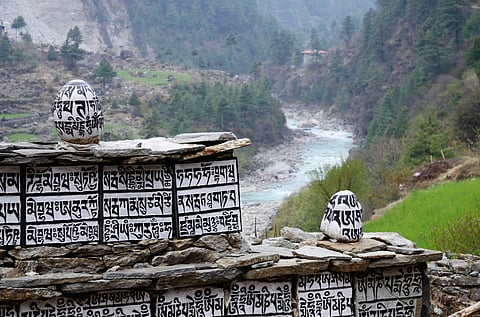The legends of Kosi
Kusaha, where the breach in the Kosi River embankment took place on 18 August 2008, is said to be a diminutive form of Kaushik Ashram, the home of the Rishi Vishvamitra, believed to be the author of the Rig Veda, one of holiest books of the Hindus. There are a few other villages in the area named Kusaha as well, and in all likelihood the sage could have lived in any of those, too. According to Hindu mythology, Kaushiki, or the River Kosi as it is called today, is Vishvamitra's elder sister. Let us look more closely at some of the stories and legends from this part of Southasia.
One story is about an eminent ascetic named Richeek, of Rishi Bhrigu's lineage, who was given to deep meditation. One day, he went to the palace of King Gaadhi, son of King Kaushika, and asked for the hand of his daughter, Satyavati. Gaadhi was a royal and Richeek an indigent Brahmin, and hence the king turned down the proposal. But as Richeek was leaving, the king, making what he believed to be an impossible demand, told Richeek that if he could present him with a thousand horses, as fair as the moon, as swift as the wind and each with one dark ear, then he would accept the proposal. Richeek proceeded to beseech the god Varun for the horses, which the latter made available through the River Ganga. Legend has it that it was at Asvatirtha, near Kannauj in Uttar Paradesh, on the banks of the Ganga, where the river delivered the horses. Richeek went to the king with the thousand horses, and the king dutifully allowed his daughter Satyavati to marry the poor, aged ascetic.

